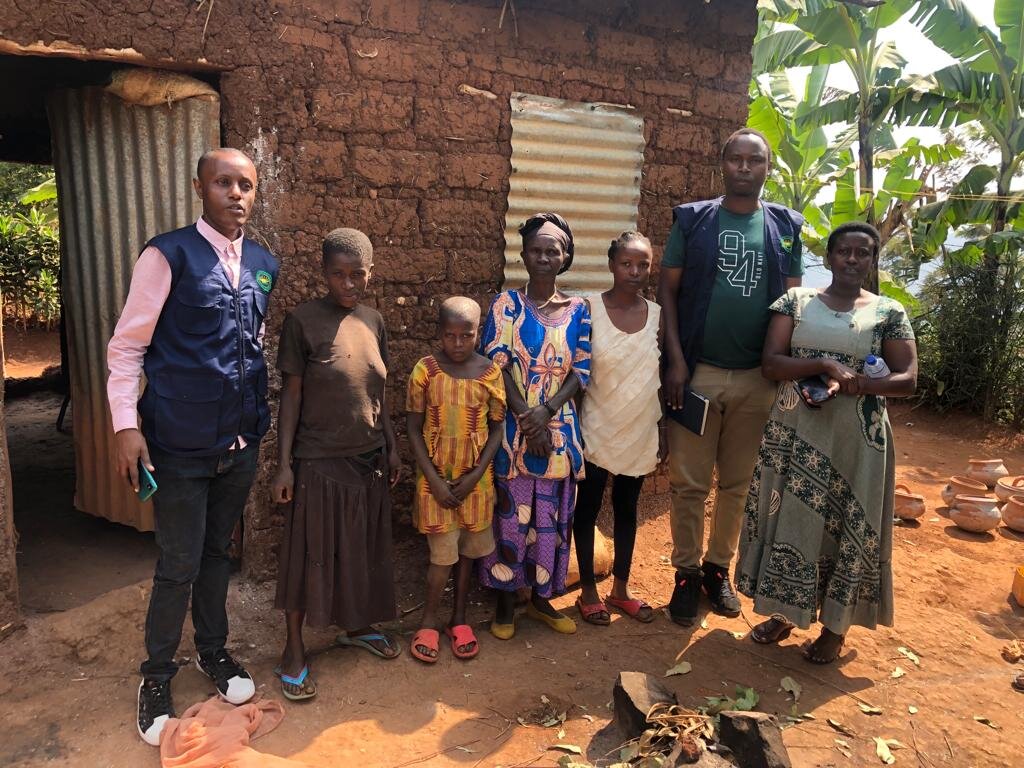By Jean Damascene Uwizeyimana | Project Leader
Dear Patrons,
I am very happy to share with you in detail, more information on the Batwa community in Rwanda and to share with you the main activities RWAYDAVO is planning to do to empower indigenous people in Rwanda.
Batwa group are the most marginalized groups in Rwanda, these people have lived in what is contemporary Rwanda as well as parts of neighboring Burundi, Uganda, and Congo for centuries, pursuing their traditional hunter-gatherer type existence in the region's once plentiful forests. Nowadays, they find their habitats and their livelihoods have been denied them. The Rwandan state has for decades been taking over and controlling forest areas for conservation, tourism, and security purposes.
The National Institute of Statistics of Rwanda done in 2018, has estimated the Batwa population to be at between 25,000 – 30,000 which is around 1% of the Rwandan population. Rwanda has experienced genocide in 1994, during the 1994 Rwandan genocide, also known as the genocide against the Tutsi, members of the Hutu ethnic majority of Rwanda murdered as many as 1,000,000 people, mostly of the Tutsi minority. The post-genocide law prevents the collection and dissemination of data disaggregated by ethnicity, so exact numbers of the Batwa cannot be calculated easily.
In Rwanda, the Batwa are also known as: “abasigajwe iynuma n’amateka (the ones who have been left behind by history). Outside of Rwanda, the Batwa are known as Twa, “Pygmies” (a pejorative term), forest people and (former) hunter-gatherers. Transitional justice efforts implemented by the Government of Rwanda after the 1994 genocide has eliminated ethnic designations, rejected the recognition of special categories of the population, and criminalized any speech or action deemed “divisionist” given the history of divisive policies and rhetoric that led up to the genocide.
Before full eviction from the forests in the 1970s – 1990s, the Batwa relied on the resource-rich forests for their sustenance, livelihoods, spiritual activities and identity. Much of their traditional territory has now been turned into three of the country’s national parks – Volcanoes, Gishwati-Mukura and Nyungwe – depositaries of a majority of Rwanda’s biodiversity and which generate significant tourism revenue. The Batwa have been effectively denied access to their homelands and with that have lost most of their means of making a living and now live a shockingly impoverished existence. There are now acute problems such as the poverty and marginalization of the Batwa and due to their social status and poverty they are isolated.
The overall goal of the project is to empower indigenous and most vulnerable people through integrated social, educational, health, and economic interventions.
This project will provide social support, vocational training, mentorship, livelihood training, literacy and numeracy training, and economic support for indigenous and most vulnerable people.
Objectives:
The project targets 4,200 indigenous and most vulnerable people who are severely affected by extreme poverty in Rulindo District, Northern Province of Rwanda.
The main activities of the project are the following:
We request you to donate generously to our project so that we can keep working and achieve our goals. You could also consider doing a monthly recurring donation for our project, which will help us with our ongoing work. The link for the monthly recurring donation.
We thank you for everything that you have done for our project, and we look forward to your continued support.
Thanks and Best Regards.
Jean Damascene UWIZEYIMANA
RWAYDAVO President
By Jean Damascene Uwizeyimana | Project Leader
By Jean Damascene Uwizeyimana | Project Leader
Project reports on GlobalGiving are posted directly to globalgiving.org by Project Leaders as they are completed, generally every 3-4 months. To protect the integrity of these documents, GlobalGiving does not alter them; therefore you may find some language or formatting issues.
If you donate to this project or have donated to this project, you can recieve an email when this project posts a report. You can also subscribe for reports without donating.
Support this important cause by creating a personalized fundraising page.
Start a Fundraiser